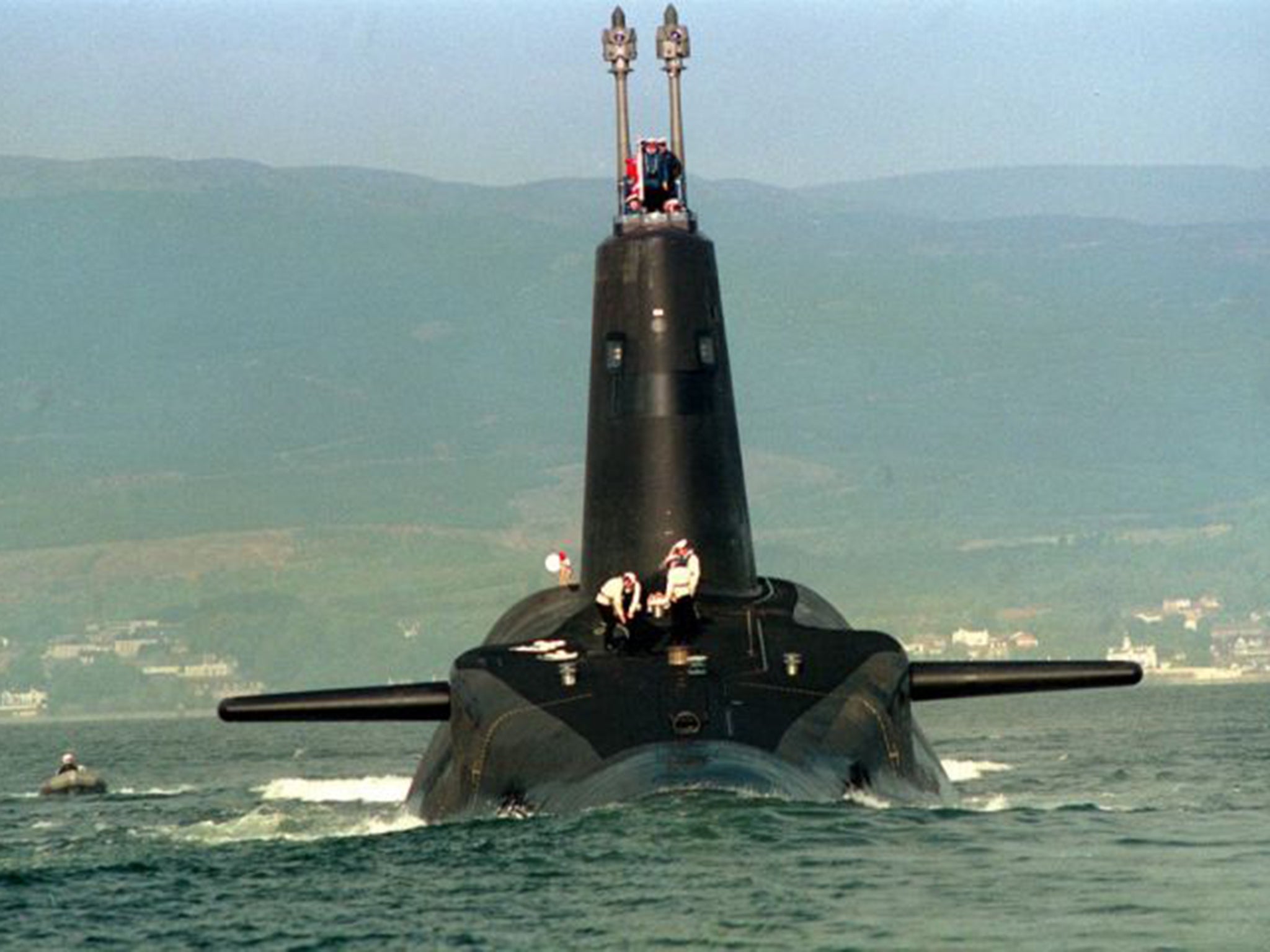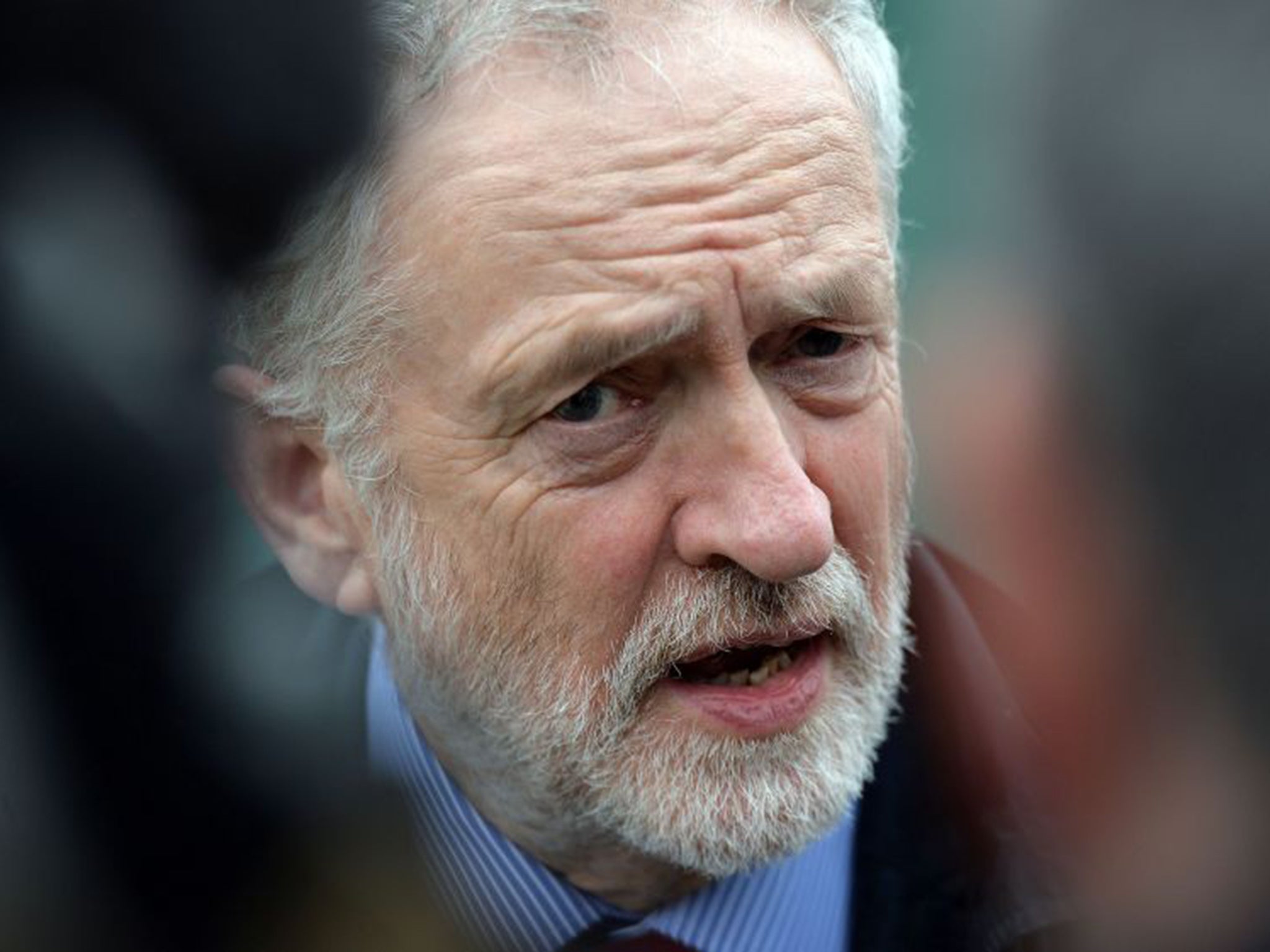Nato members nervous about Jeremy Corbyn, says former head Lord Robertson
Officials say they are being asked by ‘very, very anxious’ allies about Labour leader’s lack of commitment to Trident

Your support helps us to tell the story
From reproductive rights to climate change to Big Tech, The Independent is on the ground when the story is developing. Whether it's investigating the financials of Elon Musk's pro-Trump PAC or producing our latest documentary, 'The A Word', which shines a light on the American women fighting for reproductive rights, we know how important it is to parse out the facts from the messaging.
At such a critical moment in US history, we need reporters on the ground. Your donation allows us to keep sending journalists to speak to both sides of the story.
The Independent is trusted by Americans across the entire political spectrum. And unlike many other quality news outlets, we choose not to lock Americans out of our reporting and analysis with paywalls. We believe quality journalism should be available to everyone, paid for by those who can afford it.
Your support makes all the difference.Nato and US officials have begun raising concerns about Jeremy Corbyn’s leadership of the Labour Party with MPs and ministers during official visits, The Independent on Sunday can reveal.
A senior government source said foreign diplomats had voiced fears about the state of the Labour Party after becoming alarmed at reports they had received from their embassies in the UK.
Speaking to The IoS, the former head of Nato, Lord Robertson, confirmed that there was “a great deal of nervousness” among Britain’s traditional allies whose defence relies on the Nato nuclear deterrent supplied by Britain and the United States.
Lord Robertson’s intervention comes after the Labour MP Madeleine Moon, a member of the influential House of Commons defence select committee, warned a private meeting of the Parliamentary Labour Party that she had been approached by Nato delegates during a trip to Washington who were “very, very anxious” about Mr Corbyn’s lack of commitment to Nato, his support for Russia and opposition to Trident.
A government source said there was now growing concern in Whitehall about the Labour Party’s stance. “These are people who dealt with Labour for years during the Blair and Brown years. They can’t believe the reports they are getting back. It is definitely starting to trickle through – we now get questions about it every time we travel abroad. It might be good for the Tories in the short term, but it’s bad for the country, there’s no doubt about that.”
Lord Robertson, who was Nato Secretary-General from 1999 to 2003 and Defence Secretary under Tony Blair, said countries in the Nato alliance were “getting very nervous”.

“The UK is one of the major powers in Nato – its deterrent is part and parcel of the Nato deterrent. The questioning that’s going on about renewing the submarines – there’s a great deal of nervousness around and it’s perfectly understandable.
“It’s coming from the Americans, but other countries too. People forget that the British deterrent, as well as the American deterrent, is committed to Nato. That’s the nuclear umbrella under which other members of Nato shelter. Countries which might themselves have thought they needed the deterrent don’t go in that direction because the collective defence of Nato makes sure the umbrella is there. We’re not talking about a purely domestic deterrent.”
Ms Moon, the MP for Bridgend, said she had been approached in the US and asked what was going on. “We have taken peace for granted, but people are now waking up to the reality. We are seeing a much more assertive, aggressive and belligerent Russia and we’re just pretending that it is not there,” she said.
“I was in Washington for a Nato conference. So many delegates wanted to speak to me about the Labour Party and the stance we are taking on Nato and Trident. They were very, very anxious. The conversations we are having here are about UK weapons, but we fight in an alliance so they are also alliance weapons.
“They are watching what we are doing and are very fearful. For countries in eastern Europe the deterrent we have is very, very real and they are nervous about what they are hearing.”
The US Defence Secretary, Ash Carter, has urged Britain to renew its nuclear deterrent. The Government is expected to delay a vote on spending £40bn to replace the four submarines in the Trident programme until after the summer.
Join our commenting forum
Join thought-provoking conversations, follow other Independent readers and see their replies
Comments